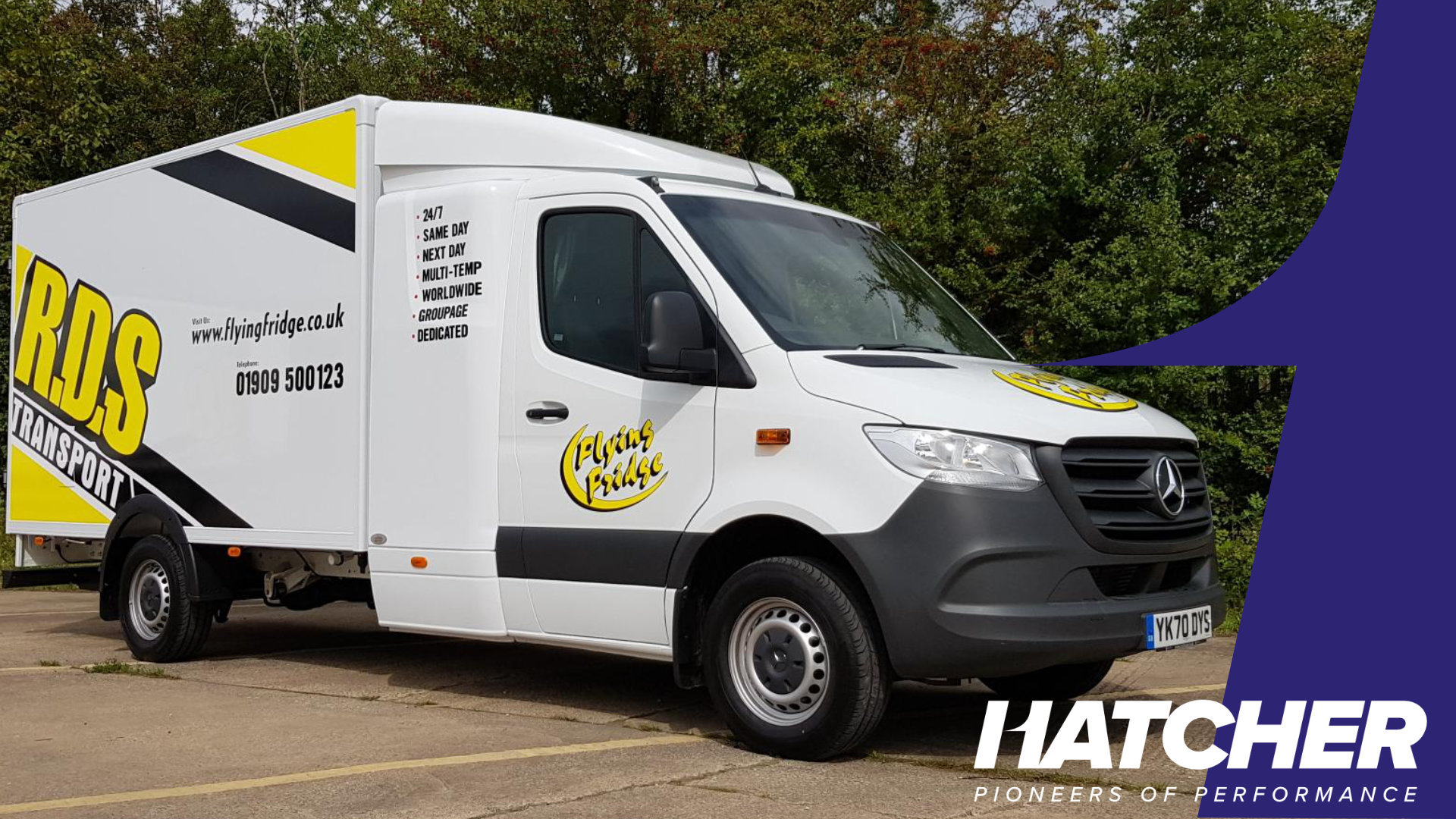
Adapted Sprinters Suit Staff And Operator Needs
Look at vehicle acquisition from all angles. That’s the view of RDS Transport’s Jerome Wallhead.
RDS are the UK’s leading temperature-controlled courier service and they have just taken delivery of another two Mercedes Benz L3 Sprinters, complete with a Hatcher DeepSleeper cab conversion and AeroCool air kit to complement their dual temperature-controlled bodies fitted by Solomons Commercials.
Looking at the requirements of RDS, the logical option might be to opt for a sleeper pod, however the DeepSleeper conversion extends the cab by 820mm to create the sleeping compartment, something that some might see as lost cargo space.
Hatcher supply an extensive range of cab conversions and with Jerome factoring in every consideration, from driving colleagues to fuel efficiency, he settled on the DeepSleeper.
Jarome concluded that the gains of a back sleeper outweighed that of a pod, particularly as he says the compromise with the LCV sector is often payload rather than cargo area. “Even with the L3 chassis we do have a slight compromise with space but it doesn’t impact us greatly. We can still accommodate three pallets and it still has a payload of 750kg,” he adds.
Fuel is critical factor in Jarome’s decision making, even for smaller commercial vehicles. Here he called upon the expertise of Hatcher Components.
Fuel is estimated to account for 25 – 37% of an HGV’s operating costs, depending on vehicle, payload and routing, and Jerome thinks that this is the same for LCV’s. “A typical LCV with a sleeper conversion probably has twice the MPG of a truck. But when you factor in the operating life of the vehicle it is probably around the same 25 – 37% estimate. Regardless, fuel is a significant outlay and we want to do all we can to minimise use.”
Hatcher have also equipped the vehicles with a Fridge Spoiler refrigerated air kit. This further reduces drag but also has the convenience of being tiltable for easy access to the refrigeration unit itself. Jarome estimates that with the Deepsleeper conversion and air kit the fuel saving is around 5%.
The value of LCV aerodynamics is questioned by some but isn’t by Jerome. “Typically, our vehicles are doing over 300,000 miles in their lifetime. With that mileage any fuel saving is likely to be significant. Even if we don’t achieve a 5% saving the air kit will still pay handsomely with the mileages we are doing.”
Further plusses come in the form of fleet versatility. The DeepSleeper makes it easier for regional based staff to stay in location and be resourced by what can be described as mobile distribution centres. “This is saving us considerable time, fuel and mileage on the vehicles,” he notes.
Another factor is the problem for operators to find affordable accommodation. “An event at the SECC Glasgow or Wembley London means there can be no accommodation, or what is available is three times the usual price. The advantage with the DeepSleeper conversion is that it can accommodate a full-size bunk. Also, it has ample storage space underneath.”
Hatcher’s Craig Poacher says there’s plenty to like about the DeepSleeper conversion. “It’s roomy, has bags of storage space and options like curtains, LED lighting and night heater!”
